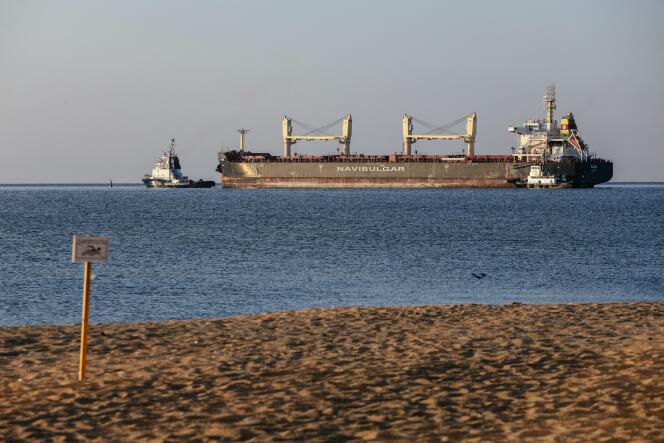
Turkish President Recep Tayyip Erdogan and Ukrainian officials said Saturday, March 18, that an unprecedented wartime deal that allows grain to flow from Ukraine to countries in Africa, the Middle East and Asia where hunger is a growing threat and high food prices are pushing more people into poverty has been extended.
Ukrainian Deputy Prime Minister Oleksandr Kubrakov tweeted that the deal had been extended for 120 days, but Erdogan did not confirm the length. Ukraine, Turkey and the United Nations had been pushing for a 120-day extension while Russia wanted to renew for 60 days.
This is the second renewal of separate agreements that Ukraine and Russia signed with the United Nations and Turkey to allow food to leave the Black Sea region after Russia invaded its neighbor more than a year ago. The warring nations are both major global suppliers of wheat, barley, sunflower oil and other affordable food products that developing nations depend on.
Russia has complained that shipments of its fertilizers also critical to the global food chain – are not getting to global markets, which has long been an issue under the deal that first took effect in August and was renewed for another four months in November.
The war in Ukraine sent food prices surging to record highs last year and helped contribute to a global food crisis also tied to lingering effects of the Covid-19 pandemic and climate factors like drought. That disruption in shipments of grain needed for staples of diets in places like Egypt, Lebanon and Nigeria exacerbated economic challenges and helped push millions more people into poverty or food insecurity. People in developing countries spend more of their money on basics like food.
Falling food prices
Food prices have fallen for 11 straight months, but food was already expensive before the war because of droughts from the Americas to the Middle East – most devastating in the Horn of Africa, with thousands dying in Somalia. Poorer nations that depend on imported food priced in dollars are spending more as their currencies weaken.
The crisis has left an estimated 345 million people facing food insecurity, according to the UN's World Food Program. The Black Sea Grain Initiative has helped by allowing 24 million metric tons of grain to leave Ukrainian ports, with 55% of the shipments heading going to developing nations, the U.N. said.
The agreements also have faced setbacks since it was brokered by the UN and Turkey: Russia pulled out briefly in November before rejoining and extending the deal. In the past few months, inspections meant to ensure ships only carry grain and not weapons have slowed down.
That has helped lead to backlogs in vessels waiting in the waters of Turkey and a recent drop in the amount of grain getting out of Ukraine. Ukrainian and some US officials have blamed Russia for the slowdowns, which the country denies.
While fertilizers have been stuck, Russia has been exporting huge amounts of wheat after a record crop. Figures from financial data provider Refinitiv show that Russian wheat exports more than doubled to 3.8 million tons in January from the same month a year ago, before the invasion.
Russian wheat shipments were at or near record highs in November, December and January, increasing 24% over the same three months a year earlier, according to Refinitiv. It estimated Russia would export 44 million tons of wheat in 2022-2023.